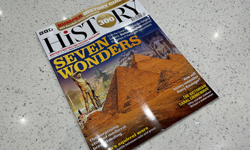Continual change in the service of driving revenue and competing in today's media environment is now the shared expectation in the magazine business. But the recent uproar over Sports Illustrated's editorial evaluation practices - dubbed "spreadsheet-gate" by media wags - exposed some raw nerves when it comes to changing editorial practices and standards.
Anyone who managed to miss this viral imbroglio can read the initial report in Gawker (that bastion of unimpeachable editorial practices) and the many commentaries that ensued. Suffice it to say that an SI spreadsheet used as part of the evaluation process when SI had to lay off some writers last February included a ranking for "produces content beneficial to advertiser relationship", as well as rankings of the quality and newsworthiness of writing, and audience / traffic, video and social performance.
When it comes to decrying the blurring of editorial and advertising, Time Inc has become the go-to example, not least because of being the cradle of the "church / state" concept institutionalised by co-founder Henry Luce. With all eyes trained on its historic, high-stakes spinoff from Time Warner, Time Inc makes for good copy. And since Joe Ripp became CEO, declared his determination to secure the future of the print-dependent company by turning it into an omnichannel powerhouse, and restructured so that its editors are reporting to the business side for the first time, Time Inc hasn't been shy, or apologetic, about pushing the envelope. Also, it must be said that despite its executives' insistence that Time Inc remains dedicated to editorial integrity, their explanations of specific practices have often come off as awkward, if not disingenuous or contradictory.
For instance, after Ad Age noted that People Stylewatch didn't bother to mention that most of the products featured in an ostensibly editorial "quiz" were ones from advertisers in the same issue, the title's publisher said: "Advertisers continue to want to be seamlessly integrated into editorial and this does this for them." Seems unambiguous. Yet she added: "Readers today better understand the integration of advertising and editorial." This latter rationale is oft heard - and importantly, not just from Time Inc executives.
In fact, it's tough to name a large publisher that has not embraced native advertising, and other once-verboten means of raising revenue, like selling cover exposure to advertisers. Condé Nast put full-page promotions for Microsoft Windows 8 on the covers of fourteen of its titles in 2012, two years before the hubbub over Time and SI putting small Verizon ads on their covers. (Time Inc execs implied that they were just catching up with the rest of the industry, and acknowledged that Time Inc would probably put cover-ad formats on its rate cards, and also carry native ad formats on its TOCs.) A few months later, ten major consumer magazines outserted ads (fake promotional covers) over their back covers, and one – Playboy - let the ad be outserted over its front cover. During a Retail Marketplace panel this year, Hearst Magazines president David Carey called Time Inc's putting ads on its covers a "great idea", adding that some existing industry guidelines are "silly and outdated", and predicting that "a lot of old orthodoxies" are going to go away out of "necessity to grow the business".
John Oliver tirade
In a heavily viewed tirade against native advertising, HBO show host John Oliver targeted The New York Times (which recently "toned down" the size and clarity of its much-lauded native ad labels), as well as Time Inc, BuzzFeed and others. During a subsequent appearance at Hearst's HQ, Oliver, referring to Ripp's decision to have editors report to group publishers, asserted: "I guarantee that 50% of his staff is fxxxing furious." He was reacting to Ripp's comments to Bloomberg TV, when the CEO said that editors are actually "happier" under the new structure because "no longer are we asking ourselves the question 'Are we violating church and state?,' whatever that was. We are now asking ourselves, 'Are we violating the trust with our consumers?' We’re never going to do that. But within the framework of that, my editors have much more freedom to think about how I can delight my consumers, how I can work with advertisers, how I can think through the problems."
Oliver expressed the core fear of many that freedom of the press itself could be threatened because journalists will fear jeopardising their jobs by writing anything that might offend an advertiser. But satire and some bad publicity aren't going to change publishers' direction at this point. What's not often mentioned is that "old school" journalists' angst about their companies dropping church / state barriers is already pretty below-the-surface. There have been few high-profile resignations, or public outcries or protests, at least with the names of current employees attached.
Further, the public seems more inclined to laugh or shrug about invasive advertising than to try to stop it (or to pay to support independent journalism). And like it or not, young people who grew up with the web's anything-goes standards may simply not see what the "slippery slope" fuss is about, and may genuinely believe that collaboration needn't undermine editorial value or credibility.
On that note, here's a quote from a Q&A with Time's new director of digital innovation, Callie Schweitzer: "I’m completely comfortable with collaboration between the editorial and business sides of companies… The editorial side of a news organisation has always ultimately answered to the CEO of the company and maintaining editorial integrity is still one of our highest priorities. I very much support breaking down walls and building open organisations where everyone can learn from one another, regardless of the department in which they work."












